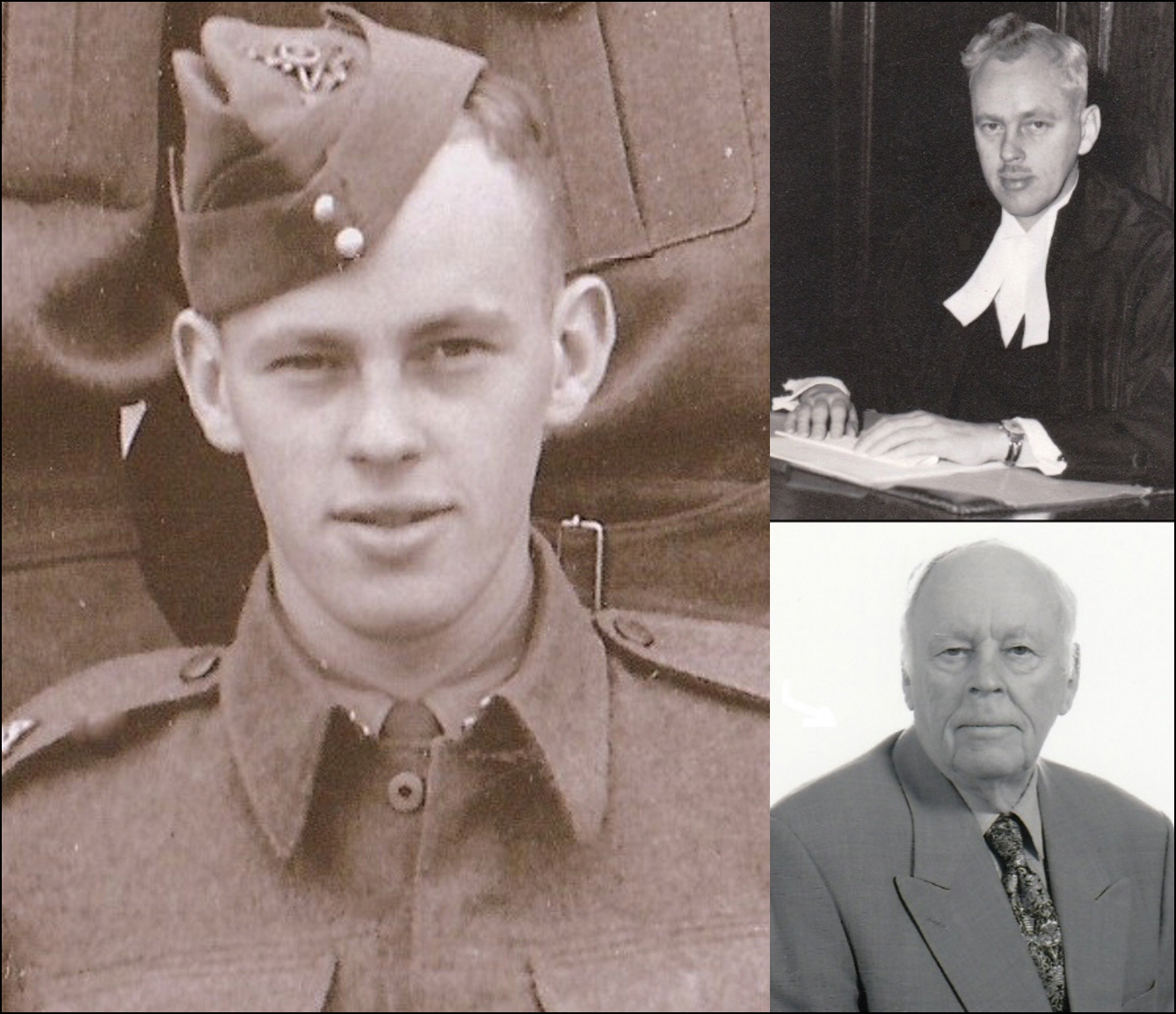By Lisa Lisle, Times & Transcript Staff Writer
Retired Court of Queen’s bench Justice William L.M. Creaghan doesn’t know what turned him on to law, but “an effort to search for the truth” kept him there for 49 years.
Creaghan, who retired and celebrated his 75th birthday at the end of last month, was the only judge appointed by former Prime Minister John G. Diefenbaker still active in the country at the time of his retirement.
In September of 1945 he went to Halifax to get his discharge from the Canadian army. While he was there he decided to go up to law school and register.
“I suppose having lived in a home where the father was a lawyer is a factor,” Creaghan said. “But there is no reason that I can think of to decide to become a lawyer.
“I just knew that I was going to get out of the army. I knew that the re-establishment credits that I was entitled to included tuition. I was fairly young. I had no particular job to return to. So, I decided to increase my education.”
Although Creaghan didn’t get his inspiration from anyone in particular, local lawyers and judges have been influenced by his integrity on the bench.
“He clearly makes it his business to not only know the law but also the issues,” said Jim Letcher, a local criminal lawyer. “This may be obvious in the case of a judge but he takes it to a higher standard. He’s a credit to the bench.”
Family lawyer Judy MacPherson, may not have appeared before him a lot, but she says the litigants always left the court with the feeling they were heard.
“He conducted the court with dignity but with ease,” she said. “His personality came out in the courtroom and he had a certain ease about himself. My experiences in his court have all been positive and I’m sorry to see him retire.”
The high regard lawyers had for Creaghan and his fairness are what kept many of his cases from going to a higher court.
“Not too many of my cases were appealed in the first place,” he said. “I think I had one case that went to the Supreme Court of Canada and in that case it was dealing with family law. I found that most of the assets belonged to the wife and the court of appeal disagreed with me unanimously. It was appealed to the Supreme Court of Canada where my judgment was confirmed unanimously.”
Pre-sentence reports and victim impact statements are two things that make his job more difficult but also keep his decisions fair.
“You get some sort of understanding of who the accused were, their living habits, and things that weren’t disclosed in the past,” Creaghan said. “That change in the practice has been very influential on all the trial judges in the country.
“There’s also something now called victim impact. If it’s a sexual assault case, the effect on the victim is a factor to consider.”
Creaghan will also go down in history books as the judge who resided over the longest trial in New Brunswick history. About 18 years ago Creaghan made closing remarks in the province’s longest jury trial, the Land Fraud Case. The five-month trial involved five defendants and more than 30 charges. At the end of the trial in June 1979, the jury of 11 decided none were guilty.
“About 500 jurors were required to select the petty panel of 12,” Creaghan said. “So, for the first and only time, the jury selection took place, not in the courtroom but in the Playhouse in Fredericton.”
It may not have been the O.J. trial, but Creaghan said it did require a lot of patience.
“You must keep your cool. You see, when you’re presiding in court you have to hear both sides of the argument and both sides of the facts. It’s best to sit and be patient. Interfere as little as possible because the lawyers know the case they’re trying to present.”
Even though the Land Fraud Case is the trial most New Brunswickers will remember and associate with Creaghan, there are several other cases he considers to be more memorable.
“I can remember jury trial where the defence counsel approached the bench and asked his client could sit next to a certain door in the courtroom. And that door led to a toilet. Apparently the accused had a bladder problem of some kind and he could go into the bathroom without a motion of some kind. The trial lasted two days and he never left the chair.”
His contributions to the province and the country also extended beyond the courtroom. From 1952 to 1958 he served as an alderman at large for Moncton and then was elected to the House of Commons where he served in the majority Progressive Conservative government as a backbencher.
In 1992, he co-chaired the Electoral Boundaries Commission with Justice Bernard Jean. In 1993, their report resulted in the redrawing of the provincial electoral districts giving the province 55 ridings. And last week he finished up another report to the government in which he made recommendations regarding the province’s conflict of interest laws.
After he cleans out his office, Creaghan and Thérèse (LeBlanc) his wife of 47 years will move to their cottage at Parlee Beach where they’ll spend the summer. During that time he hopes to get in a few games of golf.

Justice William Creaghan went to Dalhousie University Law School after his discharge from the army (above left). He served as the registrar of probate for Westmorland County from 1952 to 1958 and on the Court of Queen’s Bench from 1962 to 1997 (top right). After 49 years in law, Creaghan has retired (bottom right)